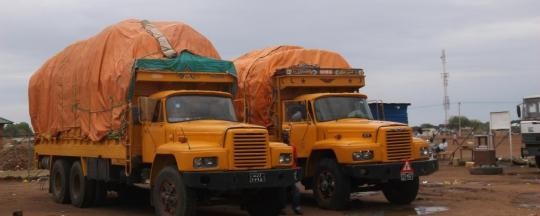Border traders from Sudan’s White Nile State and South Sudan’s Upper Nile State are eyeing implementation of the Cooperation Agreement to improve security for the movement of goods between the two countries.
Trade between the two states remains dangerous as the border has stayed closed from the northern side in spite of the recent visit by President Salva Kiir to his counterpart in Khartoum, where they agreed to to open border crossings as well as implementing the ‘four freedoms’ agreement.
One trader who brought goods to Wadakona, Manyo County, from White Nile State told Radio Tamazuj that the route was dangerous and he risked confiscation of his goods and lorry by Sudanese authorities.
“We bring goods from Sudan in Kosti through illegal means which is very expensive and involves many risks,” he explained.
He further said that traders from both sides will benefit if the two Sudans implement the ‘four freedoms’ agreement, noting that this will prevent seizure of properties as is now happening.
“You can bring goods here to South Sudan but to transfer the money back to Sudan is another problem,” he added.
The trader said that if the security service in Sudan notices any large money transfer between Sudan and South Sudan the owner of the money could lose that money and be arrested.
He also explained that citizens in South Sudan suffered from high pricing of goods simply because of charges imposed on the traders in bringing the goods from Sudan.
“If this border is open for trade, the citizens in South Sudan will get cheap goods,” he said.
He noted that big companies in Sudan want to bring their goods to South Sudan but fear the danger of bringing the goods there illegally.
Adam Jago, the chairman of the farmers union in the county, noted that the area has not been well served by trade from Juba, saying they depended on goods from Sudan.
He added that when the trade between the nations was cut off, they lost a lot of money because traders from the Sudan could no longer come to buy their Gum Arabic crops.
He said they look forward to selling this product to northern traders once the Cooperation Agreement is implemented.
Photo: Vehicles with goods from Sudan in Aweil, Northern Bahr al Ghazal State, 2 May 2013 (Radio Tamazuj)




